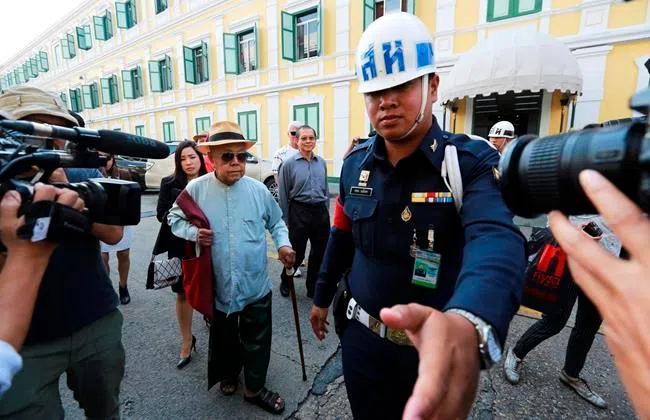
Thai court drops royal insult charges against academic
BANGKOK — A Thai military court on Wednesday dropped royal insult charges against an 84-year old historian who questioned whether a Thai king had actually defeated a Burmese adversary in combat on elephant-back over 500 years ago.
Sulak Sivaraksa was charged in October under the draconian lese majeste law that protects the monarchy from libel and defamation. The Bangkok military court had agreed to hear views from historians and experts before it decided to drop the charges for lack of evidence.
Sulak, a veteran academic and proclaimed royalist, said he had petitioned Thailand’s new king, Vajiralongkorn, for help in dropping the charges against him.
“I contacted many people for help but no one dared to. So I petitioned the king. If it weren’t for His Majesty’s grace, this case would not have been dropped,” he said.
